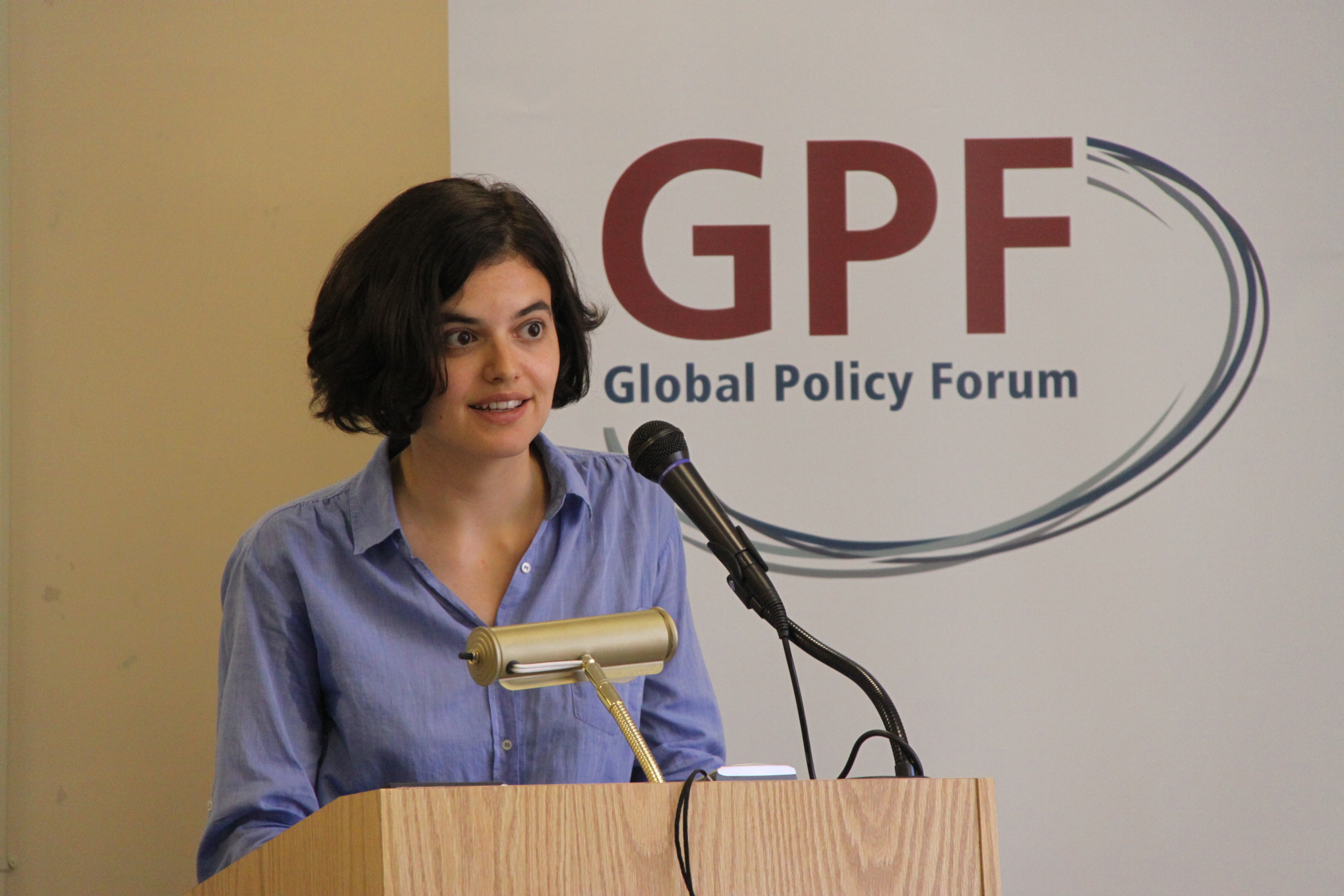REPORT LAUNCH AND DISCUSSION: Should the UN Be Using Private Military and Security Companies?
Summary by Amanda Barrow
A Dangerous Partnership
On 10 July 2012, the Global Policy Forum (GPF) held a meeting to discuss the United Nations' increasing use of private military and security companies (PMSCs). The discussion, which was grounded in a recently released report, Dangerous Partnership: Military & Security Companies and the UN, questioned whether PMSCs are appropriate UN partners.
At the event, the author of the report Lou Pingeot highlighted the three main findings of her research:
- There has been a dramatic increase in the UN's use of private military and security companies;
- There is great opacity about the issue within the UN, resulting in a lack of centralized policies on the issue, the hiring of disreputable companies, and widespread ignorance among member states and UN staff in regards to the use of PMSCs;
- The use of private military and security companies cannot be seen as an isolated phenomenon: it is indicative of a broader and evolving trend in UN security policies.
Private Military and Security Companies: Through a Gendered Lens
Pingeot was apt to illustrate the gendered impact of the UN's use of PMSCs in her report and in her statement. Delving into the UN's association with disreputable companies, Pingeot drew attention to a serious scandal that erupted in regards to the UN's peacekeeping operation in Bosnia and Herzegovina.
In 1992, the UN hired four security firms to provide services for the Bosnian peacekeeping operation. Over a four-year period, these firms provided approximately 2,000 personnel who wore UN civilian uniforms, carried UN identification, and had access to UN intelligence; these individuals represented the United Nations both symbolically and substantially.
Shortly after deployment, personnel from the security firm DynCorp—working as police officers under UN command—were found to be involved in sex trafficking and organized prostitution. Worldwide media coverage shortly followed, causing great embarrassment to the UN. Recently, this dark period in UN history was revisited by the major motion picture, The Whistleblower.
Despite the international attention paid to UN-hired DynCorp's conduct, the use of controversial security companies has continued. Pingeot argues that if the UN does not change its current policy on PMSCs, we can expect more incidents like that which occurred in Bosnia and Herzegovina. Referring to media reports from Iraq and Afghanistan—in which PMSCs demonstrated insensitive and violence-prone behavior—and to the fact that international law is currently incapable of responding to the human rights abuses committed by these companies, Pingeot calls for diligent attention to this practice.
At the very least, Pingeot suggests the UN devise a vetting, oversight and accountability system for all PMSCs. However, she urges the UN to move beyond this measure and reassess its partnership with these companies, questioning whether or not these firms can “work for the UN to promote democracy, legality and human respect when they so evidently foster secrecy, impunity and a contemptuous warrior ethos.”
